Life Style
The Inspiring Life of Jacque Lang
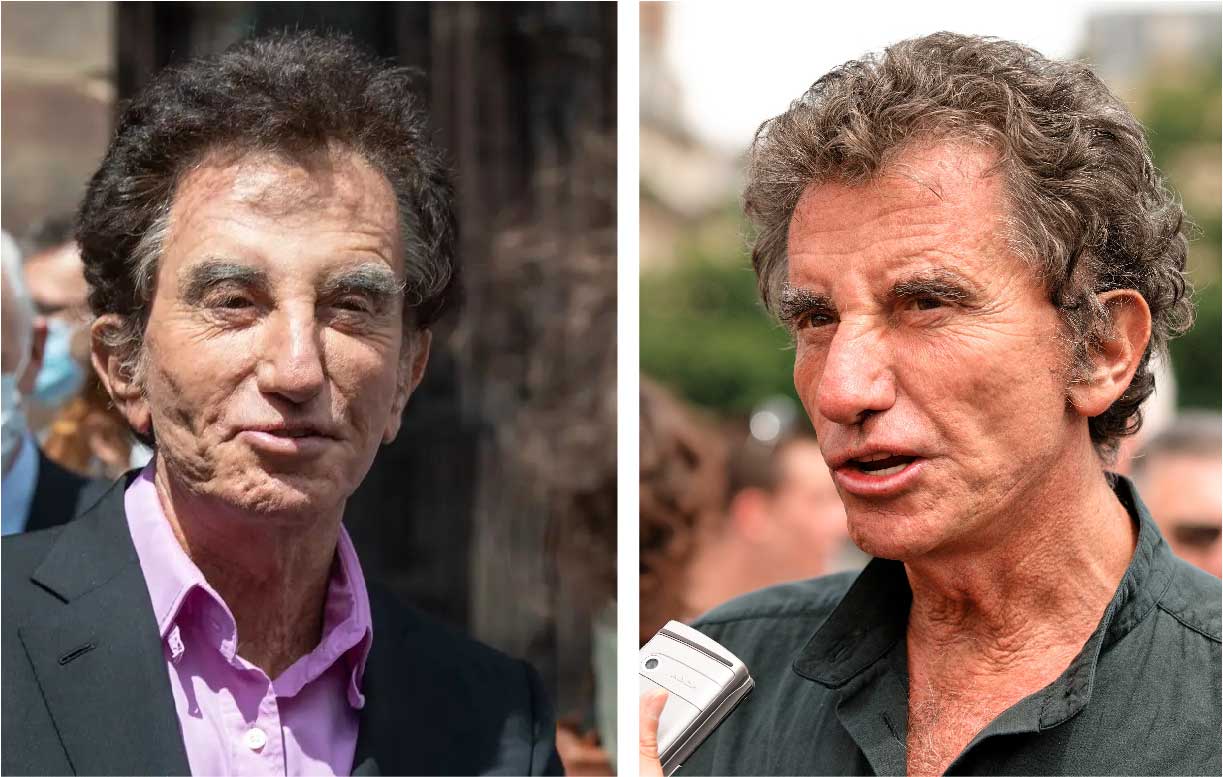
The world of culture and politics often sees figures who leave a lasting mark, but few have blended these two realms with the passion and impact of Jack Lang. Often searched for as “Jacque Lang,” this influential French politician has dedicated much of his life to making arts and culture accessible and vibrant, not just in France but around the globe.
Jacque Lang’s Bio
| Name | Jack Lang |
| Date of Birth | September 2, 1939 |
| Place of Birth | Mirecourt, Vosges, France |
| Gender | Male |
| Age | 85 (as of 2025) |
| Education | Institut d’Études Politiques de Paris; Postgraduate degree in public law |
| Zodiac Sign | Virgo |
| Nationality | French |
| Ethnicity | Caucasian |
| Marital Status | Married to Monique Buczynski in 1961 |
| Spouse | Monique Buczynski |
| Children | Two daughters |
| Father | Roger Lang |
| Mother | Marie-Luce Bouchet |
| Legacy | Known for creating the Fête de la Musique in 1982 and for his significant contributions to French culture and education |
| Famous For | Serving as France’s Minister of Culture and Minister of Education; founding the Fête de la Musique |
| Profession | Politician, former Minister, President of the Institut du Monde Arabe |
Early Steps: Building a Foundation
Born Jack Mathieu Émile Lang on September 2, 1939, in Mirecourt, France, his upbringing occurred during a tumultuous period in European history.
His family background, with a father from a secular Jewish family and a Catholic mother, provided an early exposure to diverse perspectives. His father, Roger Lang, managed the family business, while his mother, Marie-Luce Bouchet, came from a family with connections to nursing and freemasonry.
The war years brought challenges, forcing the family to move multiple times for safety. These early experiences may have shaped his later understanding of resilience and the importance of cultural identity.
His academic path laid a strong foundation for his future endeavours. Jack Lang pursued political science at the prestigious Institut d’Études Politiques de Paris (often called Sciences Po) and later earned a postgraduate degree in public law.
This combination of political understanding and legal knowledge would prove invaluable in his later roles. However, even as he studied law and politics, his heart was deeply drawn to the world of arts and culture.
A Passion for Theatre and the Arts Takes Root
Before becoming a household name in French politics, Jack Lang was already making significant contributions to the cultural scene. His passion wasn’t just theoretical; it was hands-on.
In the 1960s, he founded the Festival du Monde (World Festival) in Nancy, an initiative aimed at bringing international theatre and performance to the city. This demonstrated his early commitment to cultural exchange and showcasing diverse artistic expressions.
His leadership qualities shone through as he took on the role of director for the Nancy University Theatre from 1963 to 1972. This was followed by a directorship at the esteemed Théâtre national de Chaillot in Paris from 1972 to 1974.
Running these institutions allowed him to immerse himself in the practicalities of promoting and managing cultural activities. Simultaneously, he shared his knowledge as a professor of international law, teaching at Nancy University and later at Paris Nanterre University from 1971 until 1981.
This period clearly shows a man balancing academic rigour with a profound love for the performing arts, setting the stage for his unique political career.
Entering Politics: A New Platform for Culture
In 1977, Jack Lang took his passion for culture and public service into the political arena, being elected as a Socialist Party member to the French National Assembly.
This marked a significant shift, providing him with a larger platform to advocate for the arts and implement his vision on a national scale. His entry into politics wasn’t just about gaining power; it seemed driven by a genuine desire to embed culture more deeply into French society and government policy.
He quickly became associated with the wing of the Socialist Party most focused on cultural matters, aligning himself with François Mitterrand, who would soon become President.
Minister of Culture: Transforming France’s Cultural Landscape
Jack Lang’s most defining role came when President Mitterrand appointed him Minister of Culture in 1981. He served two significant terms in this position: 1981 to 1986 and again from 1988 to 1993.
These periods are widely regarded as transformative for French cultural policy. Lang wasn’t content with maintaining the status quo; he was an activist minister with ambitious goals.
One of his first and most impactful moves was to champion a substantial increase in the budget allocated to the Ministry of Culture.
He successfully argued that investing in culture was not a luxury but essential for national identity, social cohesion, and economic dynamism. This increased funding allowed for unprecedented support across various artistic fields.
The Birth of Fête de la Musique
Perhaps Jack Lang’s most famous and globally celebrated achievement is the creation of the Fête de la Musique (Music Day). Launched on June 21, 1982, the day of the summer solstice, the idea was revolutionary in its simplicity and democratic spirit.
Working with Maurice Fleuret, the Director of Music and Dance, Lang responded to a study showing that millions of French people, especially young people, played musical instruments.
The concept was to encourage everyone – amateurs and professionals alike – to “make music” (“Faites de la musique,” a playful homophone of the event’s name) out in the streets, parks, squares, and public spaces.
The event was an instant success. It broke down barriers between genres and between performers and audiences.
Music filled the air across France, with free concerts and spontaneous performances celebrating every kind of sound imaginable. The core principles were participation, accessibility, and joy. What started in Paris quickly spread, becoming an international phenomenon.
Today, Make Music Day, or World Music Day, is celebrated in over 120 countries and hundreds of cities worldwide, a testament to the enduring power of Lang’s simple, unifying idea. It remains a vibrant legacy of the “Jacque Lang” era at the Ministry of Culture.
Championing the Grand Louvre
Another monumental project associated with Jack Lang’s tenure as Culture Minister is the “Grand Louvre” project. Initiated by President Mitterrand, this ambitious plan aimed to renovate and reorganize the entire Louvre Palace complex, transforming it into a museum solely dedicated to art.
A crucial part involved relocating the French Ministry of Finance, which had occupied the northern Richelieu wing for over a century.
Lang was a key supporter and driver of this massive undertaking. The project included extensive renovations, archaeological excavations revealing parts of the medieval Louvre castle, and, most famously, the construction of the glass pyramid entrance in the central Cour Napoléon, designed by the renowned architect I. M. Pei.
While the pyramid initially sparked intense controversy and debate, Lang defended the bold architectural choice. Today, it is an iconic symbol of Paris and the modernized Louvre.
The Grand Louvre project vastly improved visitor access and expanded exhibition space, making the museum’s treasures more accessible to the public, aligning perfectly with Lang’s philosophy.
Supporting Books and Theatres: The “Lang Law”
Beyond music and museums, Jack Lang demonstrated a commitment to other cultural forms. In 1981, he introduced what became known as the “Lang Law,” which mandated fixed prices for books.
This law allowed publishers to set a minimum price for new books, preventing deep discounting by large chains and supermarkets. The aim was to protect smaller, independent bookstores and ensure a diverse literary landscape, preventing price wars that could harm publishers and limit the availability of less mainstream titles.
While debated by economists, the law is credited by many in the literary world with helping to maintain France’s dense network of bookstores.
He also co-founded the Union of the Theatres of Europe and supported the creation of the Europe Theatre Prize in 1986, later serving as its President, further highlighting his dedication to the performing arts across borders.
Expanding Horizons: Education and International Roles
Jack Lang’s influence extended beyond the Ministry of Culture. He also served two terms as Minister of National Education (1992-1993 and 2000-2002). In this capacity, he sought to bring reforms and potentially bridge the gap between education and cultural experiences, though his tenure here is less globally celebrated than his cultural achievements.
His commitment to local governance was evident during his time as Mayor of Blois, a historic city in the Loire Valley, from 1989 to 2000. Even in this role, he likely brought his characteristic energy to promoting local culture and heritage.
Internationally, his work continued long after his main ministerial roles. A significant position he has held since 2013 is the presidency of the Arab World Institute (Institut du Monde Arabe – IMA) in Paris.
This unique institution, itself an architectural landmark designed by Jean Nouvel, aims to promote understanding and appreciation of Arab culture and civilization and foster dialogue between France, Europe, and the Arab world. Under Lang’s leadership, the IMA has continued its mission through exhibitions, performances, educational programs, and debates.
He has overseen initiatives like expanding free access for young people and developing plans for a dedicated museum of Arab art within the Institute. His recent re-election to this post in late 2023 underscores his continued relevance and dedication to cultural diplomacy.

-

 Entertainment6 months ago
Entertainment6 months agoWhat is Shoujo Ramune? The Comprehensive Guide
-

 Celebrity7 months ago
Celebrity7 months agoThe Untold Story of Denika Kisty: Her Family, Net Worth, and More
-
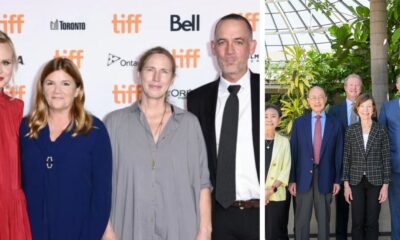
 Celebrity7 months ago
Celebrity7 months agoThe Untold Truth of William Mapel: A Deep Dive into His Personal Life
-

 Celebrity7 months ago
Celebrity7 months agoWho Is Stephanie Sarkisian? All You Need To Know AboutSteve Sarkisian’s Ex-Wife
-
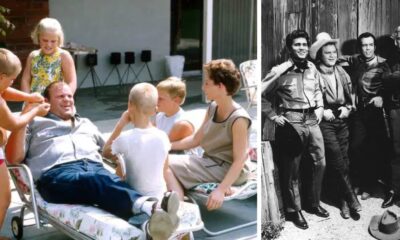
 Celebrity7 months ago
Celebrity7 months agoWho Is Dolphia Parker?: The Untold Story of Dan Blocker’s Wife
-
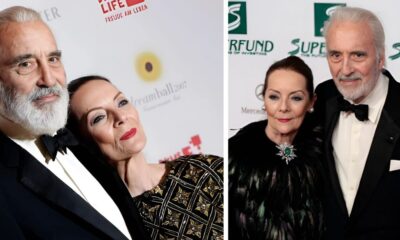
 Celebrity7 months ago
Celebrity7 months agoWho is Christina Erika Carandini Lee? Everything About Christopher Lee’s Daughter
-
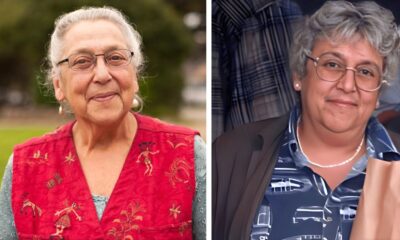
 Celebrity7 months ago
Celebrity7 months agoWho Is Susan Deixler? All You Need To Know About Barry Manilow Ex-Wife
-

 Celebrity7 months ago
Celebrity7 months agoWho Is Alice Marrow? The Untold Story of Ice-T’s Mother











